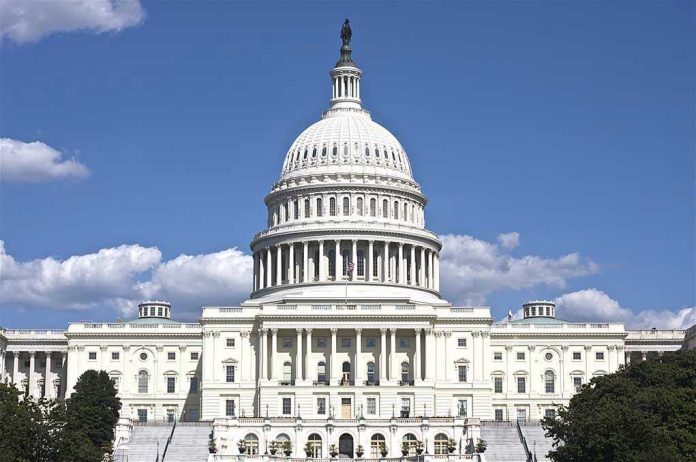
When a sitting U.S. Congresswoman uses the House floor to accuse her ex-fiancé of gang rape and sex trafficking, the collision of personal vengeance and public power exposes the raw edges of American political immunity and the risks of weaponizing official privilege for deeply private vendettas.
Story Snapshot
- A congresswoman’s public abuse allegations trigger a federal lawsuit and national scrutiny.
- Legal boundaries of congressional speech and personal accountability face rare tests.
- Multiple men sue for defamation, denying all criminal accusations and demanding damages.
- No criminal charges filed; the reputational fallout and legal consequences mount for all parties.
Congressional Privilege Meets Personal Feud: The Bryant-Mace Lawsuit
Patrick Bryant, a Charleston businessman and former fiancé of Rep. Nancy Mace, claims their fractured romance exploded onto the national stage with accusations that stretch the limits of congressional privilege. After their breakup and a contested property dispute, Bryant alleges Mace accessed his phone, extracted sensitive data, and wielded it as leverage. The confrontation escalated when Mace, standing on the House floor, accused Bryant and others of rape, sex trafficking, and nonconsensual filming—crimes with far-reaching stigma and consequences.
Bryant’s lawsuit, filed in March 2025, charges Mace with defamation, blackmail, and illegal hacking. The suit asserts that Mace’s use of official congressional speech for personal allegations constitutes abuse of power and a dangerous precedent. Legal teams on both sides have mobilized, with Bryant seeking damages and public vindication, while Mace’s camp maintains her statements are shielded by the Speech or Debate Clause of the U.S. Constitution.
The Timeline of Accusations and Legal Retaliation
The saga began in November 2023, when Bryant alleges Mace used data-extraction software on his phone, discussing her intent to leverage the contents in property negotiations with a political consultant. Days later, Bryant claims he discovered the intrusion, further deepening distrust. By February 2025, Mace’s public accusations on the House floor transformed a private breakup into a public spectacle and a political crisis. Within weeks, Bryant and another man named during the speech—Brian Musgrave—filed defamation lawsuits, categorically denying all allegations and asserting reputational and economic harm.
Despite the explosive nature of Mace’s accusations, no criminal charges have been filed against Bryant or the other named individuals. Mace’s spokesperson points to congressional privilege, arguing that her statements, made in an official capacity, are legally protected. Bryant counters that personal grievances have no place in legislative proceedings and that such allegations, without evidence or criminal charges, amount to character assassination.
Legal, Political, and Ethical Fault Lines
The lawsuits now pending in South Carolina and federal courts could have profound implications. Legal experts note that while defamation suits against public figures are common, the use of the House floor for airing intensely personal accusations is rare—and tests the boundaries of legislative immunity. If courts rule against Mace, the decision could reshape how congressional privilege is interpreted, especially in cases where official speech is used for personal vendettas.
Political analysts warn that Mace’s career hangs in the balance. If her accusations are found unsupported or malicious, she risks losing public trust, facing potential ethics investigations, and setting a cautionary precedent for other officials. Conversely, if the courts uphold her privilege, the case may embolden public figures to use official platforms for personal disputes, further eroding the distinction between personal and public conduct in American politics.
Reputational Damage and Public Trust in the Crosshairs
For Bryant, Musgrave, and others named, the fallout is immediate and severe. Reputational harm, professional setbacks, and emotional distress are compounded by media scrutiny and the specter of criminal allegations—despite the absence of charges. Their legal battle is not only about clearing their names but also about challenging what they see as an abuse of political power for personal gain.
The broader political and legal community is watching closely. The intersection of privacy, defamation, and the limits of congressional immunity will likely shape future cases and possibly inspire changes in House ethics rules. At stake is the public’s trust in elected officials to use their platforms responsibly, the integrity of legislative privilege, and the boundaries of accountability when personal and public lives collide.







